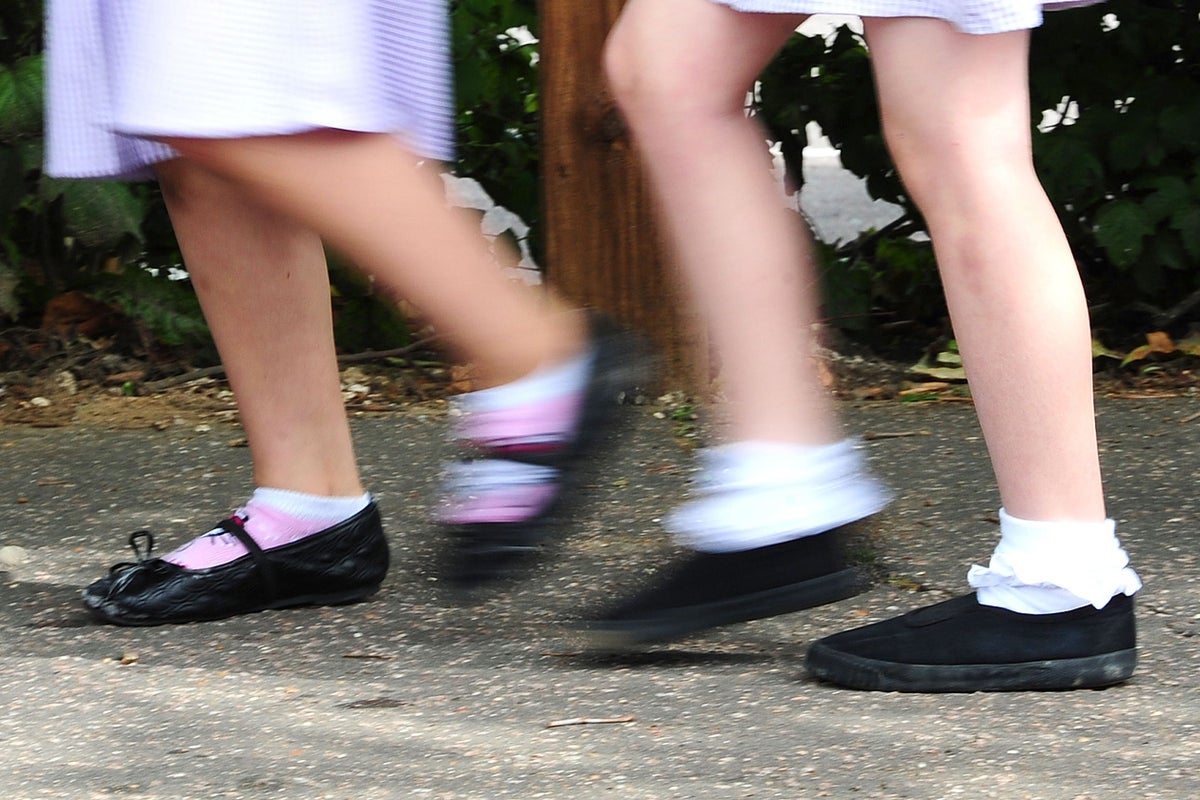
The number of referrals of children in England to social services who are assessed as needing help is at its highest level for eight years, figures show.
Some 413,320 “episodes of need” started in the year ending March 2022 – the highest since 2014, Department for Education (DfE) figures show.
These are logged when a child is referred to social services and assessed as being in need of its services, with some children having more than one episode of need in a year.
Overall, there were 650,270 referrals – up 8.8% from 2021 and up 1.1% from 2020.
The latest annual rise was driven by a 59.0% rise in referrals from schools, which the DFE data release said “might have been expected” given attendance restrictions are no longer in place following the coronavirus pandemic.
The number of referrals from schools – 129,090 – was the highest since 2014.
It follows a drop-off in referrals from schools in the year to March 2021 as Covid-19 swept through England and disrupted education, with many pupils home-schooled.
Over a third of referrals in 2022 resulted in no further action after initial consideration or were subsequently assessed as not in need.
Overall, 404,310 children were assessed as being in need – up 4.1% from the previous year and the highest number since 2018.
This is the equivalent of one in every 30 children.
Of these, more than half (230,830) had abuse or neglect identified as their primary need when assessed.
The number of children where abuse or neglect was identified as the main factor rose by 5% between 2021 and 2022.
The most common additional factors identified at the end of assessment included concern about a parent’s mental health (158,330) or alcohol abuse (70,310), that a parent is a victim of domestic abuse (160,690), and the child’s mental health (87,750).
Data was collected on child criminal exploitation for the first time in 2022, and was identified as a factor in 10,140 episodes.
Just over half of children in need were male (54%), seven in 10 where white, and children aged 10 and over made up the majority.
Today’s figures must serve as a wake-up call for the Government to make child protection a national priority— Clare Kelly, NSPCC
The figures also show that there was a rise in section 47 enquiries, which are carried out when the local authority identifies there is reasonable cause to suspect the child is suffering, or is likely to suffer significant harm.
There were 217,800 section 47 enquiries in the latest year – an increase on both 2021 and 2020 and the highest figure on record.
If concerns are substantiated, and the child is judged to be at continuing risk of harm, an initial child protection conference should be convened.
A child becomes the subject of a child protection plan if they are then assessed as being at risk of harm, with 50,920 children on such plans in 2022.
Clare Kelly, associate head of policy at the NSPCC, said: “It’s concerning to see a rise in children needing support, in particular for abuse and neglect, when we know the system is struggling to cope and the cost-of-living crisis will likely leave more families needing help.
“Today’s figures must serve as a wake-up call for the Government to make child protection a national priority and publish their action plan in response to the review into the tragic deaths of Arthur Labinjo-Hughes and Star Hobson as soon as possible.
“The new Prime Minister Rishi Sunak could also signal his intention to act by appointing a Cabinet minister for children today, as recommended by the Independent Inquiry into Child Sexual Abuse last week.”
The Children’s Society warned the data on child criminal exploitation will be the “tip of the iceberg”.
Sarah Wayman, the charity’s head of policy and impact, said: “More needs to be done to protect children, including earlier identification of risks such as exploitation to commit crime, sexual abuse, mental ill-health and domestic abuse.
“But this requires significant investment. Spending by councils on early support for families halved over the last decade following government cuts and they need urgent funding to turn this around. It’s vital that they receive, as an absolute minimum, the £2.6 billion recommended by the recent children’s social care review to put in place early help before children and families come to harm and require even more expensive crisis support.
“It would be a false economy for the Government to shy away from this investment amid pressure for public spending cuts. In the long run, it will cost taxpayers more and jeopardise children’s safety and futures.”







